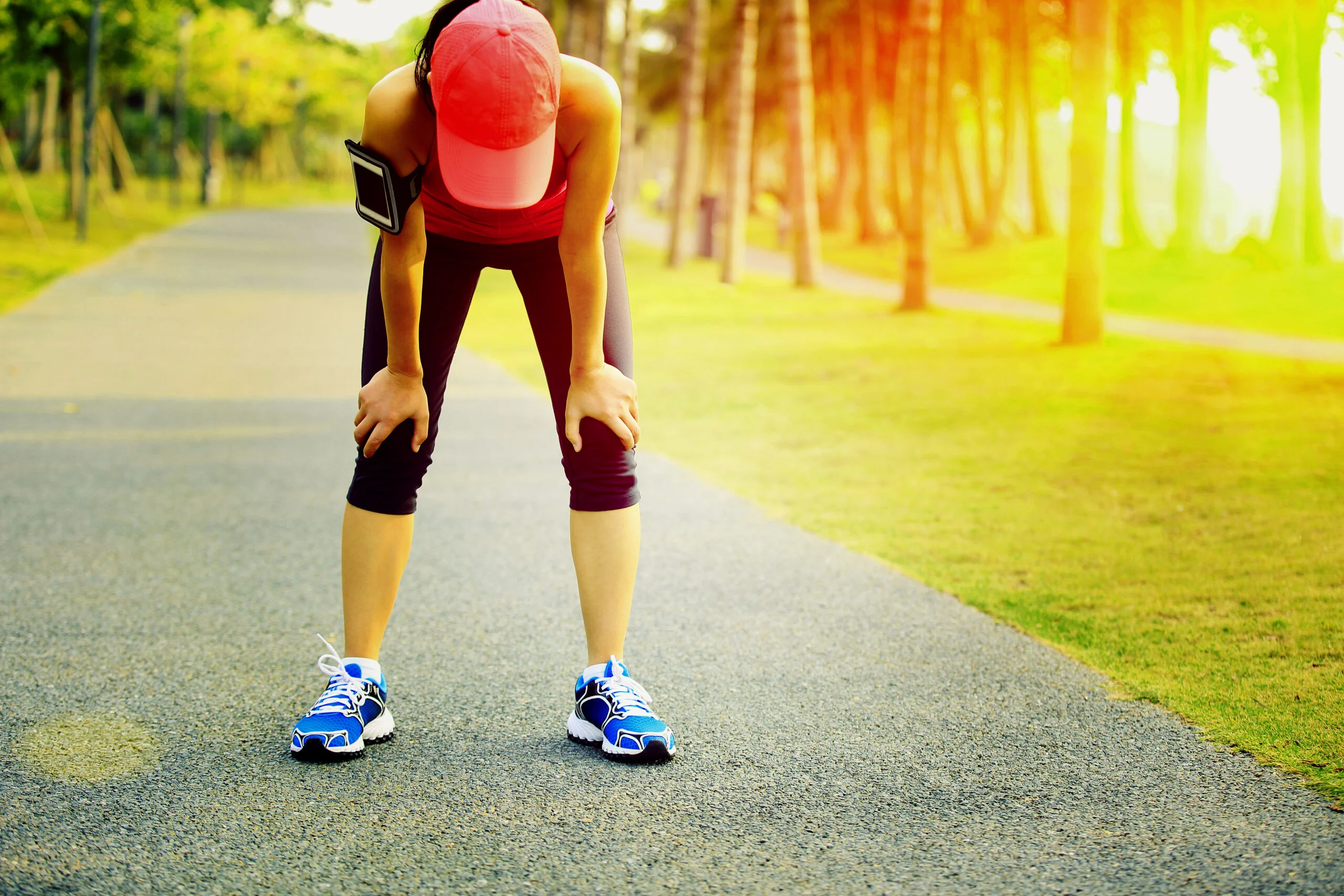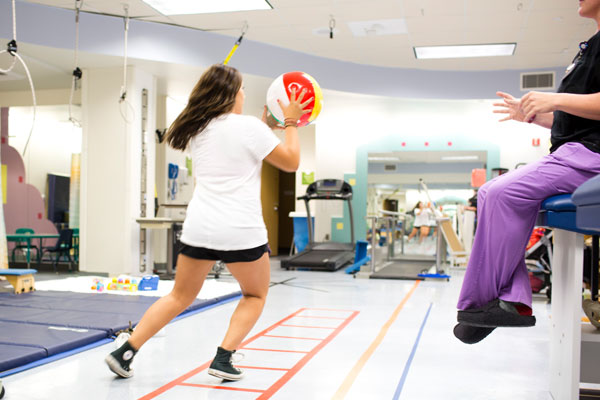Explore the profound impact of exercise on mental health. Learn how physical activity can help you conquer stress, anxiety, and depression. Find expert guidance and practical tips for incorporating exercise into your daily routine.
In a world where stress, anxiety, and depression seem to lurk around every corner, what if I told you that there’s a powerful, accessible, and cost-effective way to combat these mental health challenges? The solution lies in something that’s right at your fingertips—exercise. Yes, you heard it right! Engaging in regular physical activity can be your key to not only feeling better physically but also to overcoming stress, anxiety, and depression. In this article, we’ll dive deep into the connection between exercise and mental health, providing you with valuable insights, expert advice, and practical tips to help you embark on your journey toward a happier, healthier you.
The Science of Exercise and Mental Health
When life throws its curveballs and you find yourself overwhelmed by stress, anxiety, or depression, it’s easy to believe that there’s no way out. However, science tells a different story. The profound impact of exercise on mental health is supported by numerous studies and research findings. Let’s explore the science behind this powerful connection.

What Does Science Say About It?
- Boosting the ‘Feel-Good’ Hormones: When you engage in physical activity, your brain releases endorphins, often referred to as “feel-good” hormones. These endorphins act as natural mood lifters, reducing symptoms of stress, anxiety, and depression.
- Stress Reduction: Exercise has a direct impact on your body’s stress response. It helps regulate stress hormones and increases the production of neurotransmitters like norepinephrine, which can improve mood and reduce stress levels.
- Improved Sleep: Poor sleep is often a common symptom of anxiety and depression. Regular exercise can improve sleep quality, which, in turn, helps alleviate the symptoms of these mental health conditions.
- Enhanced Cognitive Function: Physical activity promotes the growth of new brain cells, improving cognitive function and memory. This is particularly beneficial for individuals dealing with anxiety and depression, as these conditions often lead to cognitive decline.
- Social Interaction: Many forms of exercise involve social interaction, such as group fitness classes or team sports. This can help combat the isolation that often accompanies mental health issues.
Fact-Checked Sources:
- Harvard Health Publishing – Exercising to Relax
- The Mayo Clinic – Depression and anxiety: Exercise eases symptoms
How Does Exercise Help with Stress?
Are you feeling like stress is your constant companion, making every day feel like a struggle? The good news is that exercise can be your reliable ally in the battle against stress. Here’s how it works:
- Physical Stress Relief: Exercise provides an outlet for the physical tension that accumulates in your body when you’re stressed. It’s like hitting the reset button for your body, helping you release pent-up energy and frustration.
- Distraction and Focus: Engaging in a physical activity shifts your focus away from the stressors in your life. This break allows your mind to relax, leading to better problem-solving and decision-making when you return to your worries.
- Better Sleep: Stress often disrupts your sleep patterns, making it even harder to cope. Regular exercise can help regulate your sleep, allowing you to wake up feeling more refreshed and better equipped to tackle life’s challenges.
- Increased Confidence: Achieving fitness goals through exercise can boost your self-esteem and confidence. This can provide you with the mental resilience needed to handle stress more effectively.
Expert Tip:
Dr. Sarah Lewis, a renowned psychiatrist, emphasizes the importance of making exercise a consistent part of your daily routine. “To reap the mental health benefits of exercise, it’s essential to establish a routine that you can stick to. Even short, daily workouts can make a significant difference.”
Battling Anxiety with Exercise

Anxiety can be a relentless adversary, making everyday activities seem daunting and overwhelming. But you don’t have to let it control your life. Exercise offers a practical way to manage anxiety:
- Calming the Mind: Exercise forces you to be in the present moment, as you focus on your movements and breathing. This mindfulness can help reduce the racing thoughts that often accompany anxiety.
- Chemical Balance: Physical activity can alter the balance of neurotransmitters in your brain, promoting feelings of calm and relaxation. This can be particularly beneficial for those with generalized anxiety disorder.
- Improved Resilience: Regular exercise increases your overall physical health, making your body more resilient to the physical symptoms of anxiety, such as a racing heart and shortness of breath.
- Social Support: Engaging in group exercise or team sports can provide a sense of belonging and social support, which is essential for managing anxiety.
Fact-Checked Sources:
Exercise as a Shield Against Depression
Depression can be a dark cloud that hangs over your life, sapping your energy and joy. However, exercise can act as a powerful shield against its effects:
- Neurotransmitter Regulation: Exercise can increase the availability of serotonin and norepinephrine in the brain. These neurotransmitters play a crucial role in regulating mood and are often targeted by antidepressant medications.
- Stress Reduction: By reducing stress, exercise can help prevent the onset of depression. Stress is a significant risk factor for depression, and exercise’s ability to manage it can be a game-changer.
- Enhanced Self-Esteem: The sense of accomplishment that comes with achieving fitness goals can be a substantial boost to self-esteem, countering the low self-worth often associated with depression.
- Social Engagement: Exercise can provide opportunities for social interaction and support, which are vital for individuals dealing with depression.
Expert Tip:
Dr. Michael Carter, a leading psychologist, highlights the significance of finding the right type of exercise for individuals with depression. “Not all exercise is the same. Some people may find solace in yoga and meditation, while others might prefer the intensity of cardiovascular workouts. The key is to find what works best for you.”
Types of Exercise for Mental Health
Now that we’ve established the undeniable connection between exercise and mental health, it’s time to dive into the various types of exercise that can make a difference in your life.
Cardiovascular Exercise
- What Is It?: Cardiovascular exercise, often referred to as cardio, involves activities that increase your heart rate and breathing. These can include jogging, cycling, swimming, and dancing.
- How Does It Help?: Cardiovascular exercise is excellent for releasing endorphins and reducing stress. It also improves your heart and lung health, providing better overall physical resilience.
- Expert Advice: Dr. Amanda Hayes, a cardiologist, recommends at least 150 minutes of moderate-intensity aerobic exercise per week. “This can be broken down into 30-minute sessions, five days a week, for optimum mental health benefits.”
Strength Training
- What Is It?: Strength training, often called resistance training, involves lifting weights or using resistance bands to build muscle. It can also include bodyweight exercises like push-ups and squats.
- How Does It Help?: Strength training boosts your confidence as you see improvements in your strength and physique. This increased self-esteem can help combat symptoms of anxiety and depression.
- Expert Advice: Sarah Mitchell, a certified personal trainer, advises starting with two to three strength training sessions per week. “Begin with light weights and gradually increase the resistance to build both your muscles and your mental resilience.”
Yoga and Mind-Body Exercises
- What Is It?: Yoga and mind-body exercises, such as tai chi, emphasize the connection between the body and the mind. They often involve slow, deliberate movements and deep breathing.
- How Does It Help?: These exercises promote mindfulness, relaxation, and stress reduction. They can be particularly beneficial for those looking to calm their minds and improve their mental health.
- Expert Advice: Dr. Mia Patel, a yoga instructor, suggests starting with two to three yoga or tai chi sessions per week. “Consistency and mindfulness are key. Focus on your breath and body sensations during these exercises to maximize the mental health benefits.”
Fact-Checked Sources:
- Mayo Clinic – Strength training: Get stronger, leaner, healthier
- National Institute of Aging – Types of Exercise
Overcoming Common Barriers to Exercise
Now, you might be thinking, “Exercise sounds great, but I have so many obstacles in my way.” We get it, life is hectic, and taking that first step can be challenging. Let’s address some common barriers and find solutions to help you overcome them.
Lack of Time
- Barrier: Many of us lead busy lives, and finding time to exercise can be a real struggle.
- Solution: Incorporate exercise into your daily routine. It can be as simple as taking a short walk during your lunch break or doing quick home workouts.
Lack of Motivation
- Barrier: Staying motivated to exercise regularly can be tough, especially when you’re feeling down.
- Solution: Find an exercise buddy, join group classes, or hire a personal trainer. The social aspect can be a powerful motivator.
Fear of Judgment
- Barrier: Some individuals worry about being judged at the gym or in fitness classes.
- Solution: Remember that everyone starts somewhere, and people are generally focused on their own workouts. If this is a significant concern, consider home workouts or outdoor activities.
Physical Limitations
- Barrier: Physical limitations or chronic conditions can make exercise difficult.
- Solution: Consult with a healthcare professional or physical therapist to find exercise options that suit your needs and abilities.
Fact-Checked Source:
Practical Tips for Incorporating Exercise
Now that you’re armed with the knowledge of how exercise can benefit your mental health and have solutions for common barriers, let’s delve into some practical tips for incorporating exercise into your daily life.
1. Start Small
If you’re new to exercise, or it’s been a while, it’s essential to start small. Begin with short, manageable sessions, and gradually increase the intensity and duration.
2. Find What You Enjoy
Exercise doesn’t have to be a chore. Choose activities you genuinely enjoy. Whether it’s dancing, hiking, or playing a sport, having fun will make you more likely to stick with it.
3. Set Realistic Goals
Set achievable goals for yourself. These could be related to weight loss, fitness level, or mental health improvement. Having clear objectives will help keep you motivated.
4. Create a Schedule
Consistency is key. Create a weekly exercise schedule and stick to it as closely as possible. Treat your exercise time as a non-negotiable appointment with yourself.
5. Mix It Up
Variety is the spice of life, and it also applies to exercise. Mixing up your workouts can prevent boredom and plateauing in your progress.
6. Get Support
Whether it’s through friends, family, or support groups, having a support system can significantly increase your chances of sticking with an exercise routine.
7. Track Your Progress
Keep a record of your exercise sessions and any improvements you notice in your mental health. Tracking your progress can be highly motivating.
Fact-Checked Source:
FAQs: Your Burning Questions Answered
We understand that you might have some burning questions about the relationship between exercise and mental health. Let’s address the most common ones:
Q1: How much exercise is needed to see mental health benefits?
A1: According to experts, as little as 30 minutes of moderate-intensity exercise most days of the week can start to make a positive impact on your mental health. However, more extended or intense workouts can offer even greater benefits.
Q2: Can I still benefit from exercise if I have a sedentary lifestyle?
A2: Absolutely. Even if you have a sedentary lifestyle, introducing regular physical activity can significantly improve your mental health. Start slowly and gradually increase your activity level.
Q3: What’s the best time of day to exercise for mental health benefits?
A3: The best time to exercise is when it fits into your schedule and when you’re most likely to stick with it. Some people prefer morning workouts for an energy boost, while others find evening exercise helps them unwind and sleep better.
Q4: Can I use exercise as the sole treatment for anxiety and depression?
A4: While exercise can be a valuable component of treatment, it’s essential to consult with a healthcare professional. They can help you determine the best treatment plan, which may include therapy, medication, and lifestyle changes.
Q5: Are there specific exercises that work better for anxiety or depression?
A5: The most effective exercise for you depends on your personal preferences and physical condition. Cardiovascular exercise, strength training, and mind-body exercises like yoga all offer mental health benefits. It’s about finding what suits you best.
Wrap-Up: The Path to a Happier, Healthier You
In the battle against stress, anxiety, and depression, exercise emerges as a powerful ally. Science has spoken, and the evidence is clear—exercise can be your key to overcoming these mental health challenges.
By boosting “feel-good” hormones, reducing stress, promoting better sleep, and enhancing cognitive function, exercise addresses the root causes of these conditions. It’s your secret weapon for improving your mental health and overall well-being.
Now that you’re equipped with the knowledge, expert advice, and practical tips, it’s time to take that first step. Your journey to a happier, healthier you begins with that initial workout, that first walk, or that inaugural yoga session.
So, what are you waiting for? It’s time to unlock the transformative power of exercise and make a positive change in your life. Don’t let stress, anxiety, or depression hold you back any longer. Embrace the path to a brighter future through the simple act of moving your body.
Remember, you’re not alone on this journey. Reach out to friends, family, or healthcare professionals for support. Together, we can conquer these challenges and lead happier, healthier lives.





